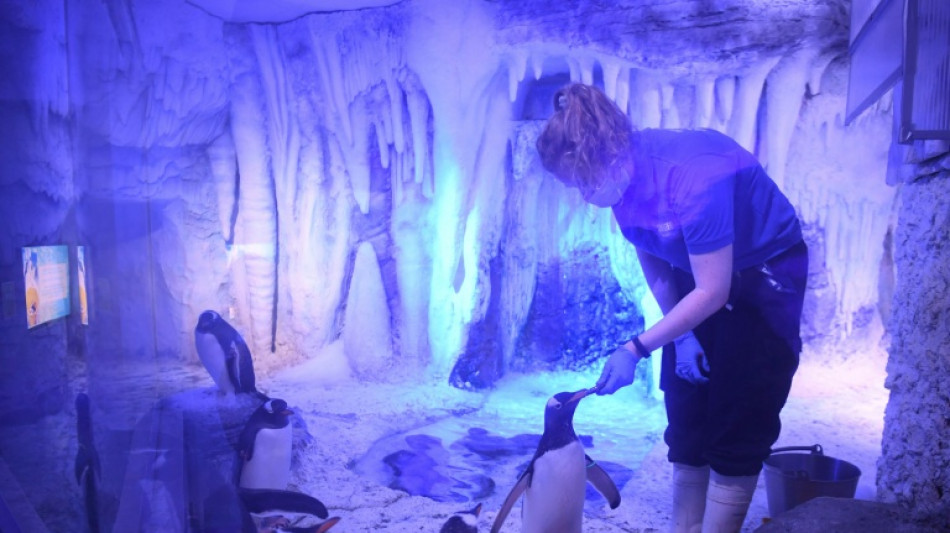

'It's un-British': lawmakers raise concerns about aquarium penguins
Some 75 British MPs on Tuesday raised concerns about the welfare of 15 penguins being kept in a windowless space at the London Aquarium.
Some of the Gentoo penguins birds have spent years at the Sea Life London Aquarium and some have never seen the sky, according to animal activists.
Lawmakers penned an open letter to the environment minister expressing "deep concern" for the penguins' welfare.
It is "un-British to keep penguins trapped in a basement with no daylight or fresh air," said letter coordinator David Taylor, Labour MP for a north London neighbourhood.
The black-and-white birds, native to subantarctic islands and northern Antarctica, have been living in an enclosure with a pool around two metres (six feet) deep, and without access to the outdoors, according to animal welfare charities Born Free and Freedom for Animals.
MPs demanded that the environment department investigate the conditions, "in light of the growing public concern", and intervene if necessary.
Sea Life, which is owned by the British theme park giant Merlin Entertainments, first introduced the orange-beaked penguins, known for being speedy swimmers, to London in 2011.
Two of the birds, named Polly and Ratchet, have endured "14 years underground", said Freedom for Animals, whose petition -- which preceeded the MPs' letter -- garnered over 37,000 signatures.
"Others, like Gilbert and Ziggy, have never seen the sky," said the charity.
A spokesperson for Merlin Entertainment's conservation team said the enclosure was actually on the ground floor, adding that the space reproduces the birds' natural habitat as far as possible and meets zoo welfare standards.
"We have an incredible team of conservationists, animal welfare specialists, and aquarists who are with the penguins every day, making sure they’re healthy and thriving," said the spokesperson.
Prime Minister Keir Starmer's spokesperson said the government takes "animal welfare extremely seriously".
London Aquarian gets over one million visitors every year, according to Sea Life.
F.Weber--BVZ




